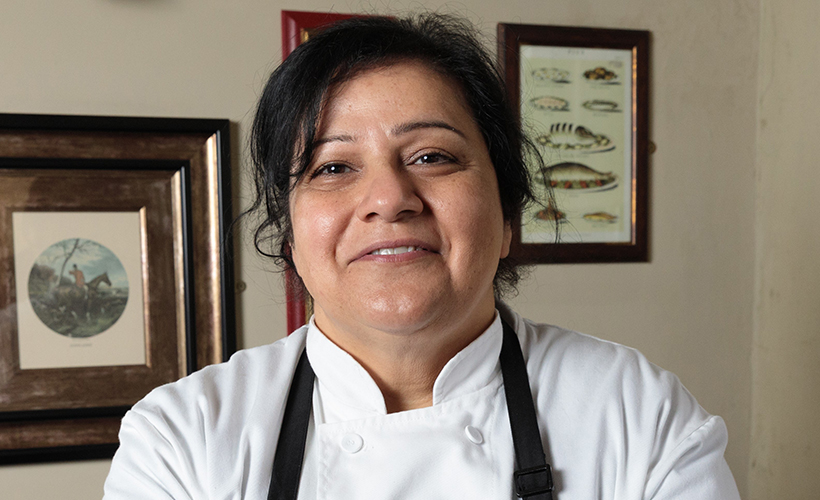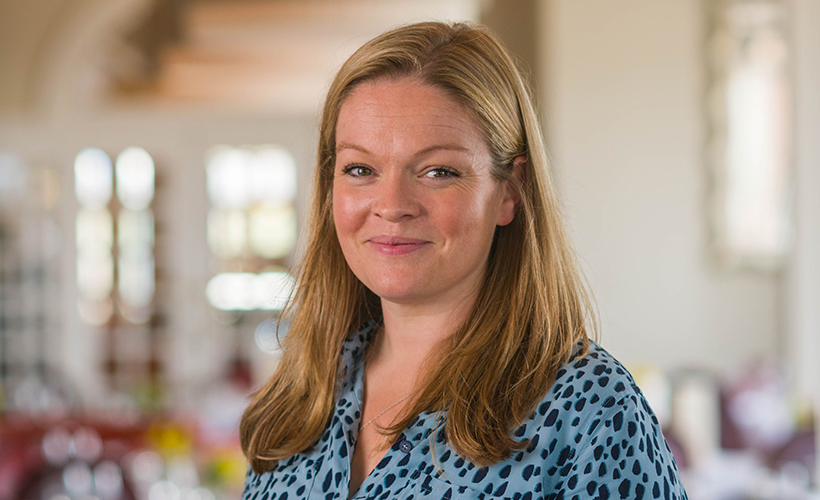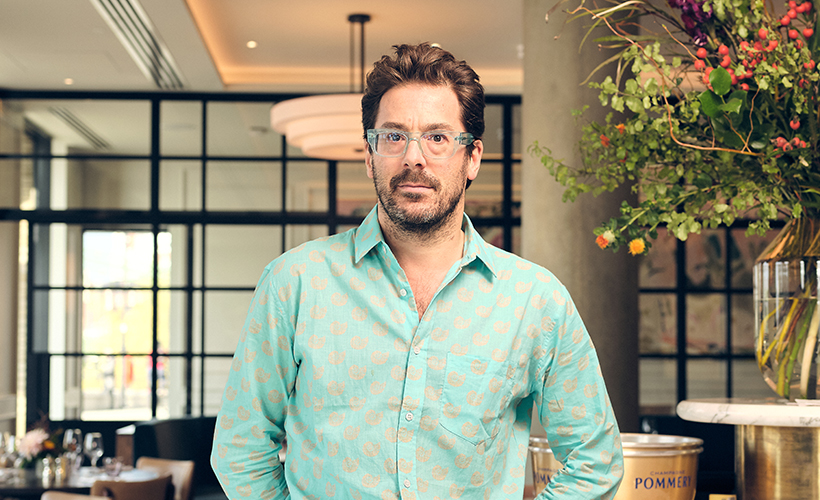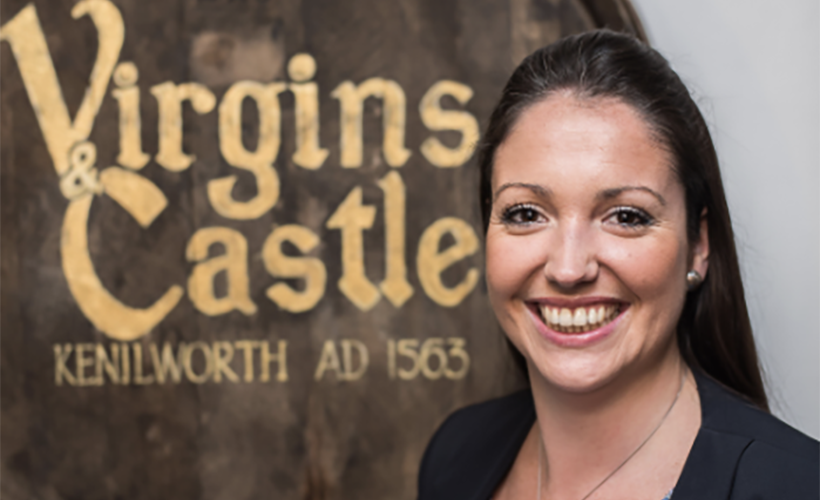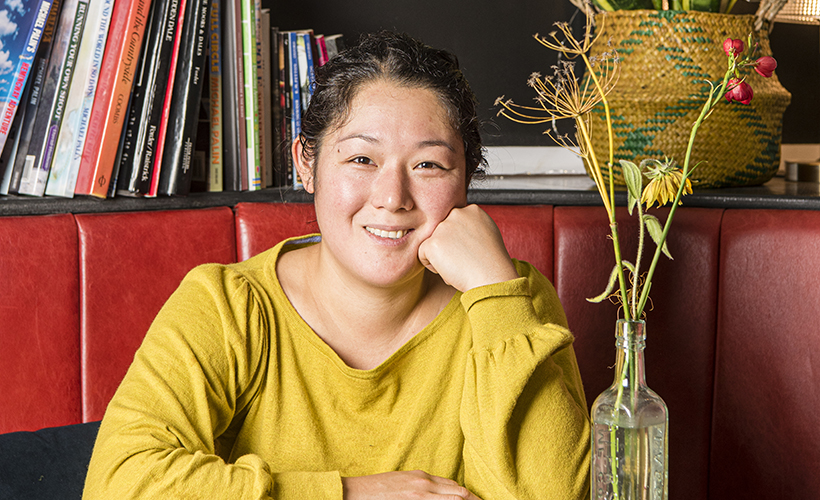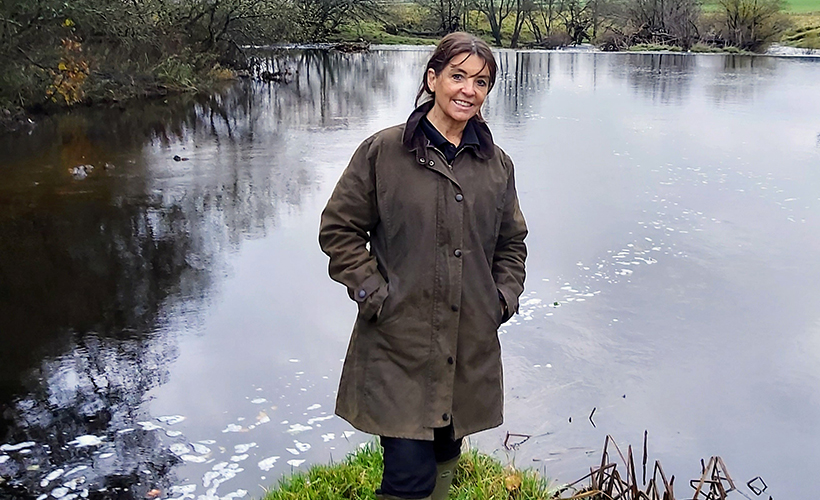In a new fortnightly series of diaries we hear from six operators from across the country to find out how they are surviving an exceptional summer
As the industry faces a busy summer season on a backdrop of multiple operating challenges, including a recruitment crisis and rapidly escalating costs, The Caterer team will be catching up with six operators fortnightly to discover how they are navigating the hurdles of what's set to be a sizzling summer.
Stosie Madi, chef and co-owner of the Parkers Arms, Newton-in-Bowland, Lancashire
Summer is usually our busiest time, but our bookings were 25% down in May and June, which I think was exacerbated by the cost of fuel. We are a rural pub in a hamlet of no more than 50 houses, and most of our customers drive about an hour to get to us. It was recently £2 per litre for diesel where we are. If you're going to go out and eat, that makes it a luxury, especially for our city visitors from Leeds and Manchester. This week the price of fuel has gone down 10p a litre in the area and bookings are 25% up again, so I'm feeling optimistic.
We're fortunate as we've got fixed utilities contracts, but I'm terrified about what happens when they're due for renewal as there are some horror stories out there. We raised our prices towards the end of May because we could foresee this happening and didn't want it to be a shock for customers.
We have local dairies all around us, but the price of butter has gone from £35-£40 a box to £75-£80. We've always made cultured butters to serve with our bread course, but now I'm looking at the price of cream to see if we can make butter from it to use for cooking too. We're about to start an experiment this week to see if it's going to be worth doing.
Normally we always sell out of oysters in the summer but last weekend we were really busy and didn't sell any at all and ended up having them for the staff meal. I don't know if it's because people didn't want the extra spend, because they still bought premium stuff like lobster and turbot. It was one of the oddest things I've seen in the whole time we've been open, but I'm hoping it's just a glitch.
Bookings are starting to come in for the late summer and autumn, which we like to see, as it means people are planning. We do need a good summer, as, after the pandemic, trade was crazy, but then it all came down with a bump when the energy and cost of living crisis hit. I don't want to dwell on it as I feel that we in hospitality can adapt to whatever comes our way. I think small independent businesses have a good chance of surviving as we can change our menus and prices every day, and that's a big advantage.
Veryan Palmer, director of the five-AA-star Headland hotel, Newquay
Energy prices are occupying my thoughts. We've been on a three-year contract which expires at the end of October and we've just received the quotes and it's terrifying.
In Cornwall 15 years ago, you made a loss from October to Easter. That's got a lot better over the past 15 years, but looking at these energy prices we're going to make a loss for more than six months of the year. Then you think, why are we even opening? It's terrifying. You can see why these predictions are going round about the percentage of businesses that are going to go under this winter.
I'm going to be having meetings with every team over the next 10 days to share the figures, because they're jaw-dropping. We've done a lot of work already to look at what everyone can do to reduce energy use, and now that we've got some tangible figures it brings it home. It would be very easy to panic, but we can't – we have 240 staff depending on us. We're lucky our team believe we're all one big family. They're already saying: "OK, what can we do?"
Meanwhile the situation at the airports –delays and cancellations – has had a significant and positive impact on Cornish businesses. We've been tracking demand and it had looked like this summer would be much tougher than the last two summers, but it's looking better than 2019 levels. Our bookings went through the roof in the 48 hours after it was reported that Heathrow would be capping passenger numbers at 100,000 a day.
This week the 14- and 15-year-olds on our summer placement scheme joined us. They're bright-eyed and bushy-tailed, and it's invigorating to see people at the start of their hospitality journey and loving it. They'll be doing a lot of training and shadowing. It's exciting. We're nicely staffed now and looking forward to this peak six weeks.
Sam Harrison, founder Sam's Riverside, Hammersmith, London
I have such mixed emotions. Part of me is so frustrated and sometimes angry about the situation the hospitality industry is in. We've survived the pandemic and are seemingly through it, but it still feels like we're restricted. It just seems so unfair.
We've never had customer demand like we're seeing now but I'm currently closed Sunday night and all day Monday as I can't staff them. I was averaging £12,000 to £15,000 a day on a Monday, and we're desperate to fill the coffers again but I just can't open.
Sadly, the only way I can see it improving is when other people go out of business. I don't wish that on anyone, but I think that there's a storm brewing and many closures coming by the end of the year.
I have had people in for interviews who asked whether they have to work weekends or if they can finish by 11pm. I just can't hire that person. We are looking at flexihours and different shift patterns, but I can't say to someone that they don't have to work weekends.
I was relieved, though, that we were closed on that ridiculously hot Monday in the middle of July. The following day, the 19th, was our busiest Tuesday on record. People were almost begging us to have a table inside in the air conditioning. I didn't see that coming at all. It was crazy. On a good Tuesday we will do between 160 and 180 covers. That night, though, we did 220 for dinner.
Most nights we're doing big numbers, though fully staffed we could do more. We have to stagger people arriving because if you have only five waiters rather than six and fewer chefs, you can't have as many arriving at once without jeopardising quality.
We're all worried about costs, but right now it's also supply and lead time for everything. With glassware and crockery, nobody can tell you when anything will arrive. In London it seems impossible to get hold of the 330ml glass Coke bottles. That's how we like to serve our Coke and we can't get them. We had a boy crying on Saturday lunch as he couldn't have his usual drink! We were giving people two 200ml mixer bottles instead, but it's just a reflection that you can't get stock.
Julie Crump, COO, Caviar & Chips
The staffing crisis is always on our minds, but the last couple of weeks it's been front and centre as we enter wedding season. Across the Caviar & Chips group we have 120 permanent members of staff employed across the Midlands, who work at our two pubs, our wedding venue and a bespoke catering business which delivers weddings and events across the UK. During wedding season we sometimes need an additional 40% of casual workers, as most weekends in the summer we have up to five weddings in one day. We're also recruiting for our soon-to-open Stockton House boutique wedding venue. We're finding recruitment for our fixed locations a bit easier than the external events because people don't seem to want to travel as much.
As an industry, a lot of people have left our sector. We've all worked in places expecting unsustainable, very long hours each week, where we've not felt looked after or valued. At Caviar & Chips, that's never been the case. I'm not saying you never work a long day, but we place a great emphasis on it being a great place to work. This includes having a wellbeing programme and learning and development opportunities.
But even the best of planning and recruitment policies can't predict the exact movements of the solar system. The Eid-ul-Adha festival is dictated by where the moon is in the sky and it was rather a last-minute decision as to whether Eid this year fell on Saturday 9 July or Sunday 10. We expected it to be the Sunday, but when it turned out to be the Saturday, understandably our team members who celebrate Eid wanted to be with their families, which meant we were suddenly down 12 members – around 40% of the team – on a sunny Saturday when we had four weddings.
We had to be a bit creative with what we did and we called around the rest of our teams, friends and family. Within hours we had a full team again. It was amazing because even colleagues who worked in the pub side of our business who had the day off said they would come in and help make those weddings work – it was an uplifting, positive outcome.
Nina Matsunaga, chef patron, the Black Bull, Cumbria
Trade is busy but still at a manageable level, which helps to keep the hours consistent. January to March was really busy, then it tailed off a bit during April to June, but now it's reassuringly steady.
We've switched the menu to include more cold dishes – like tartare, fish crudo, salad or ceviche – which suits the summery weather better. We're in between the Lake District and the Yorkshire Dales, but we were still melting in that heatwave.
Generally, we're doing okay with the supply of ingredients. We can't seem to get hold of a few vegetables, but if they're not from the UK anyway, maybe we should just stick to seasonal produce. When it comes to meat, we're prepared to switch our selection around a little. Our butcher might not have pork, so then we'll order short ribs, and if that runs out, we can get lamb belly.
In fact, it's not really the food that is causing problems, it's the equipment. We had to wait ages for parts of a hob, which finally arrived the other day. As for the cool boxes – they took about five weeks to turn up because I didn't realise they were coming from Europe. You're not used to equipment taking so long, but it's definitely slowed operations down a bit in recent months.
We've been so lucky with staff – touch wood. It's always nice to have more back of house staff, especially chefs, but considering our secluded location, we're doing pretty well. We have a lot of school leavers on our front of house team who have stayed on. The only thing is that an increasing number of them don't have a driver's licence. We might have to look into providing more staff accommodation or some means of transport.
Debrah Dhugga, chief operating officer, the Apartment Group
We've been busy with the opening of our latest property, Runa Farm in Barnard Castle, Durham – the name comes from the merging of rural and nature. It's a 30-bedroom rustic-inspired hotel, country pub and luxury wedding venue with exclusive use of the farmhouse too. We opened up for weddings from 26 July and to the public from 31 July. We haven't had any problems filling our vacancies here, which is wonderful.
Before that, we opened 27 new luxury garden rooms on our estate at Newton Hall, a luxury hotel and wedding venue in Northumberland, in the north-east of England, specialising in outdoor weddings and corporate events. Bookings for these have been amazing, and pick-up has been fantastic. People seem to be more and more concerned about delays at airports and with airport travel in general, so there is still a spike in staycations, especially in Northumberland it seems.
Recruitment is still a challenge for us, especially at the moment with kitchen roles. We've definitely seen a drop in the number of people interested in the chef world, but new projects always help with attraction. It's fresh opportunities and it's exciting!
So for now, my focus is all about our standards: delivery, attention to detail, and getting the doors open. Then our attention will be on the customer service essentials and looking at the customer journey, because that's what people are buying – the look and cleanliness and making sure we deliver an experience that's enjoyable. We want to make sure we're not just another wedding venue, and for our teams to start enjoying working in hospitality again. We want people to come back and work in hospitality and understand that it's a lifestyle, not just a job.
Continue reading
You need to be a premium member to view this. Subscribe from just 99p per week.
Already subscribed? Log In


